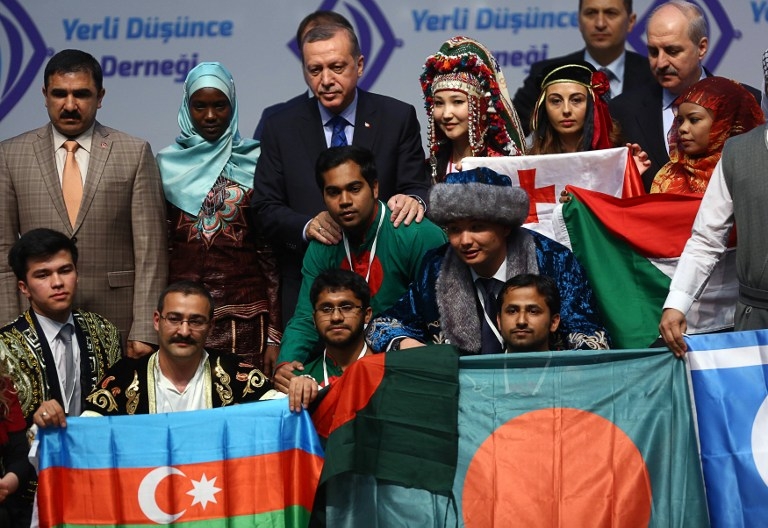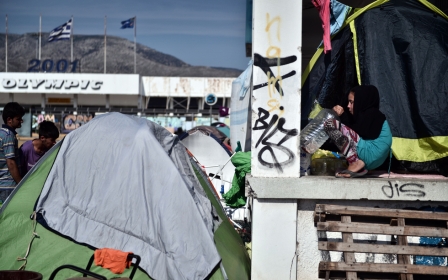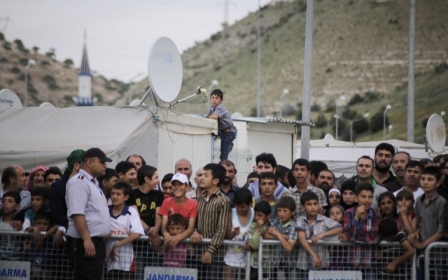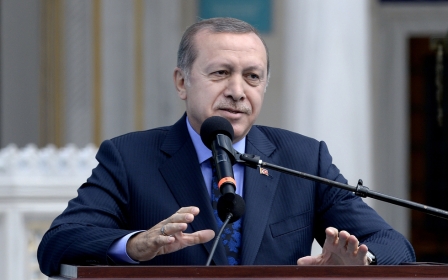Turkey visa deal at risk as Erdogan clashes with EU over terrorism

Prospects of Turks enjoying visa-free travel to most of the European Union appeared to be receding on Thursday after President Recep Tayyip Erdogan said Ankara would not bow to demands by the bloc to narrow its definition of terrorism.
The promise of visa-free travel is considered a key pillar of a landmark deal announced in March for Turkey to stem the flow of migrants to the EU, but Erdogan accused European countries of "hypocrisy" for telling Ankara to adapt its terrorism laws even as it is in the midst of a campaign against militants from the Kurdistan Workers' Party (PKK) and other Kurdish groups.
"The EU stands up and says 'soften your approach over the terrorist organisation'," Erdogan said in a speech in Ankara, referring to the PKK.
"Since when are you running this country? Who has given you the authority?" he asked, in one of his most stinging attacks in recent weeks on the EU.
"They believe they have a right for themselves (to fight terror) but find it a luxury and unacceptable for us. Let me say it clearly - this is called hypocrisy."
But European Commission chief Jean-Claude Juncker on Thursday told Erdogan that Turks would only enjoy travel to the passport-free Schengen area if all conditions were met and it would be "his problem" if it failed to materialise.
Ankara is obliged to meet the remaining five out of 72 conditions of the deal for its citizens to unlock visa-free travel for its citizens to Europe and Juncker's comments indicated the EU saw no room for negotiation if Turkey did not fulfil all the conditions.
"We consider that it is important for these conditions to be fulfilled, otherwise this deal between the EU and Turkey will not happen," Juncker said in Berlin.
"If Mr Erdogan wants to pursue his strategy, then he has to answer to the Turkish people why Europe is denying free travel to Turks. That's not my problem, that will be his problem."
The EU wants Ankara to sharply narrow its definition of "terror" to prevent recent cases like the prosecution of academics and journalists for publishing "terror propaganda".
German Chancellor Angela Merkel, who spearheaded efforts to conclude the migrant deal with Turkey, has also stepped up its calls for the anti-terror law to be amended.
Foreign Minister Frank-Walter Steinmeier said that in deciding whether to grant visa liberalisation, the EU was waiting to see "the readiness of Turkey to end persecution of journalists through the usage of an anti-terror law".
"I don't have an influence on that, the ball is on the Turkish side," he said.
Turkey has for decades sought to become a member of the EU but its bid has hit repeated stumbling blocks, sparking increasing bitterness in Ankara.
The Turkish president, who has sought to build closer relations with key Arab and Asian states during his presidency, said Turkey had alternatives to the EU.
"In the period ahead of us, either we will develop our relations with the EU and finally get on this road or we will find a new road for ourselves," he said.
"We prefer to build new Turkey together with our European friends. We will now wait our European friends' decision."
Middle East Eye propose une couverture et une analyse indépendantes et incomparables du Moyen-Orient, de l’Afrique du Nord et d’autres régions du monde. Pour en savoir plus sur la reprise de ce contenu et les frais qui s’appliquent, veuillez remplir ce formulaire [en anglais]. Pour en savoir plus sur MEE, cliquez ici [en anglais].




